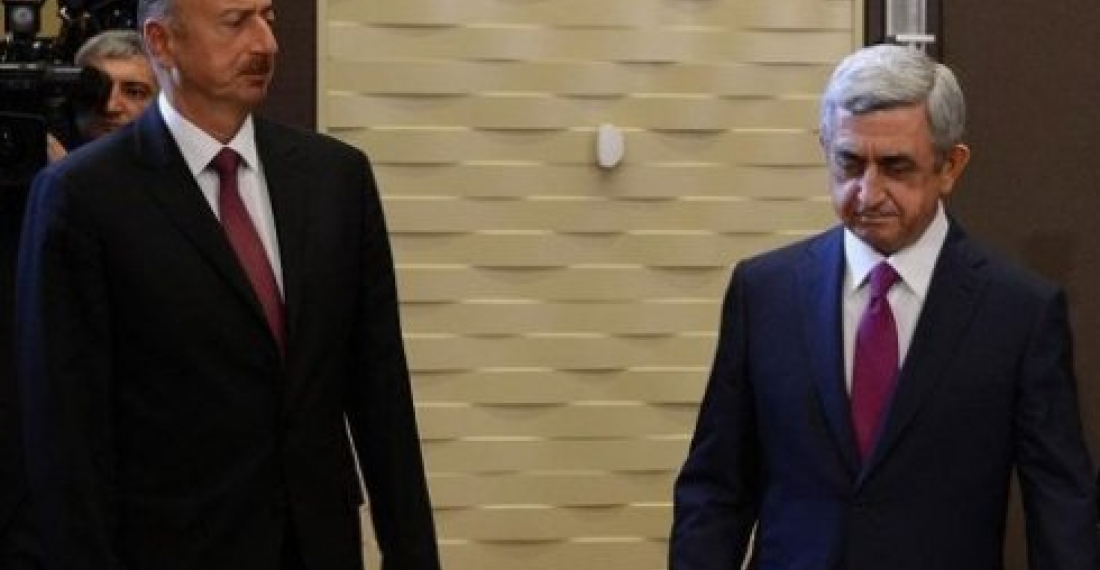President Serzh Sargsyan of Armenia and President Ilham Aliyev of Azerbaijan are expected to meet in Geneva on Monday (16 October) in the latest effort to start the process of resolving the Nagorno-Karabakh conflict. The two presidents met last time in June 2016 in St Petersburg in a meeting that was brokered by Russian President Vladimir Putin. Putin, Sargsyan and Aliyev last week were all in Sochi attending the summit of the Commonwealth of Independent States, but no trilateral meeting was reported.
The Geneva summit has been prepared with the assistance of the diplomats from France, Russia and the United States who co-Chair the OSCE Minsk Process that since 1992 has been mandated by the international community to mediate between the sides in the conflict. Despite a cease fire agreed in 1994 the two sides regularly engage in low-intensity hostilities. Hundreds of military personnel and civilians on both sides have been killed since the cease fire came into effect.
Commonspace.eu political editor said in a comment that the stakes on the success of tomorrow's meeting are high. "With the two sides now possessing very sophisticated weaponary, most of it supplied by Russia, a resumption of fighting will throw the region into havoc. The events in April 2016, when an upsurge in fighting led to many casualties on both sides, was just a taster of what might happen. Despite the fact that the international community is distracted by even larger dangers in East Asia, the Middle East and Africa, the Karabakh conflict remains a matter of concern way beyond the region. The meeting between the two presidents will be a welcome sign that the two sides are ready to re-engage in the negotiations that are necessary if the conflict is to be resolved. However, expectations, in the region and beyond, are low. The two presidents have met more than a dozen times since 2008, on each ocassion raising hopes momentarily of a breakthrough. But lack of follow-up on decisions taken always allowed the situation to slide back to an even lower point than before. Given that there is a sense that time is now running out, and that the status quo is now not only no longer acceptable, but also no longer tenable, this summit may prove to be the last chance Aliyev and Sargsyan have to make their mark on history through a peaceful breakthrough."
related content: Baku and Yerevan give different spins to St Petersburg Summit
souce: commonspace.eu with agencies
photo: President Aliyev and president Sargsyan at an earlier summit (archive picture)






